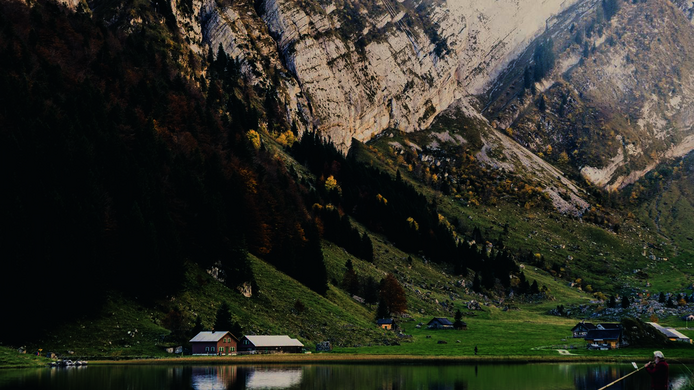The history of yodeling and how it survived

In the 19th century, after Tyrolean vocal groups had made yodeling internationally known and popular, Tyrolean songs with yodel parts caught on also in Switzerland. One hundred years later, at the beginning of the 20th century, some passionate Swiss yodelers founded the Eidgenössischer Jodlerverband (EJV) (Swiss Yodeling Association) in order to promote Swiss yodeling and to curb Tirolerei, as they dubbed the undesirable yodel influence from Tyrol. At mid-century, when yodel songs originating in Tyrol had already become popular in Europe and the USA, the efforts of the Swiss to preserve their own folk music came at a time when nationalist tendencies were becoming stronger. From the end of the 19th century, yodeling was increasingly instrumentalized for political purposes. “Moreover, yodeling was defined as belonging to an archetypically German cultural heritage.” explains Raymond Ammann from the University of Innsbruck. In his recently completed project Tirolerei in der Schweiz (The Tyrolean Yodel in Switzerland), which was funded by the Austrian Science Fund FWF, the ethnomusicologist examined the historical development of yodeling in Tyrol and Switzerland and focused, inter alia, on social aspects.
A source of identity
Ammann's research has shown, for instance, that yodeling fulfilled an identity-defining function for Tyrol as far back as the Napoleonic Wars. There, the yodel served then as an acoustic symbol of rebellion against the French and Bavarian troops, whilst in Switzerland folk music festivals devoted to yodeling, such as the Unspunnen festivals in Interlaken near Berne, were organized to celebrate the indigenous folk traditions and to foster a sense of unity among the urban and rural population. Such measures ensured the survival of yodeling in Switzerland. Concrete steps to promote Swiss yodeling and push back the Tyrolean influence, however, were taken only at the beginning of the 20th century when the Swiss Yodeling Association was founded.
From patriotism to a shout of freedom
In the first half of the 20th century, governments in both countries used folk songs and songs with yodel parts for their respective purposes, even if their motivation differed, as we know today. In Austria, singing and yodeling were considered during the Nazi era as something of a patriotic duty and the regime supported yodeling practice in various ways. In Switzerland, the first written yodel school manual (Schulungsgrundlage) was published in 1943 with the goal to promote the proper Swiss yodel and to define its distinct form that differs from yodeling in National Socialistic neighbouring countries. The ulterior motive was to affirm national identity and distance the Swiss from the Nazi regime. Later, in the 1960s and 1970s, yodeling was ridiculed as “musical chauvinism” and largely disappeared from view of the urban population. In recent years, yodeling has seen a surprising revival under new auspices. What is more – its popularity has never been greater than it is at the beginning of the 21st century. Fans can now be found among middle-class urbanites as well. Yodeling and related vocal forms such as Dudeln and Juchezen have found their way into the modern lifestyle. They are without reservations combined with other pastimes such as hiking, or even Yoga, Qi Gong or Pilates. They have become a therapeutic tool, designed to liberate practitioners from the everyday stress. “Today, yodeling is seen as something that connects people and no longer as a way of distinguishing oneself from others,” confirms Raymond Ammann. People who are interested in yodeling nowadays do not see it as a means of drawing cultural demarcation lines and identity building, but as an opportunity for a new personal, musical experience - both as an individual and in groups.
Yodeling goes world music
Amman suggests that the reason for this trend lies in recent music history. “Neue Volksmusik (new folk music) emanated from the Austropop movement. Initially the lyrics were satirical, and in the 1990s these songs, with their references to home and country and their musical intensity, triggered an emotional response in the listeners.” At the same time, Ammann explains, the booming trend of world music meant that people became more open to popular music from abroad, which in turn sharpened interest in local musical “exoticisms”. This new predilection for yodeling sometimes brings enthusiasts from Austria, Switzerland and Germany together at international workshops that advocate cross-border yodel dialogue. The results of the recently completed project will be available i.a. in the book "Tirolerei in der Schweiz", which will be published by Universitätsverlag Wagner in spring 2020.
Personal details Raymond Ammann studied ethnomusicology in Switzerland and qualified as a professor in 2001 at the Leopold Franzens University in Innsbruck, where he teaches and conducts research at the Institute of Musicology. He concentrates his research on music in Oceania, the polar region and the Alps.
Publications





